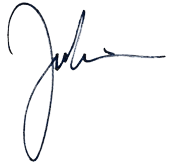
Head of School's Blog: Becoming the Change Makers
Published December 13, 2019
Both Chanukah and Christmas celebrate the miraculous in human history. This year I find myself both praying for miraculous inspiration and organizing for collective action regarding the challenges of our time.
Responding to climate change is the greatest of those challenges. The overwhelming majority of scientists give humanity a limited time to effect radical change before disastrous consequences are certain. While some politicians and scientists dispute that assessment or the timeline, it’s becoming impossible to ignore the mounting evidence in the form of extreme weather, mass extinctions, melting ice caps and permafrost and rising seas. This scenario presents a particular challenge to educators: How can we acknowledge the rising sense of anger, helplessness, and depression in both students and adults, and transform it into a commitment to better prepare ourselves and students to become the change makers we need?
Among schools, Campbell Hall is at the forefront of this issue. Because of an initiative led by students and Board-approved several years ago, we have this sustainability mission statement: “Campbell Hall is committed to ethical and excellent education; we model our values through our actions. Therefore, Campbell Hall will become a forward-thinking environmental steward, nationally recognized for our commitment to sustainability.” And we have made tremendous strides to that end, with on-campus composting, tower gardens in which vegetables are grown with very little water, drought-resistant landscaping, campus-wide LED lighting, a robust recycling program, elimination of plastic water bottles, and so much more (watch for new charging stations for electric vehicles very soon!). Evan Bowser ‘15 (one of the students leading the charge his senior year here) recently graduated from Ohio University with a Bachelor of Science in Urban Planning & Sustainability and is consulting with us on accelerating our progress towards carbon neutrality.
Responding intelligently to the threat of climate change is not simply a scientific issue. While we all need to understand the science in order to identify the facts and to comprehend their implications, we also need to understand economics, develop our critical thinking skills, and learn how to tell compelling stories that will inspire and motivate action. On that note, I recommend the documentary Journey of the Universe for holiday viewing (available on Prime!); it offers one of the most inspiring and comprehensive cosmological and human narratives I have ever seen.
We also need truckloads of social, emotional, and spiritual development that will support us through difficult times and provide the grounding we need to move forward. We need grace under pressure, grit, the willingness to listen and feel deeply without getting overwhelmed. We need to teach students, and better practice as adults, how to inquire together in high-performing teams. We need to teach how to distinguish valid arguments made in good faith from self-interested arguments offered in bad faith. We need what our elementary school students call the breathing tool, cultivating some mindfulness practice to manage our equilibrium. And we may, in the midst of it all, keep our special Campbell Hall sense of fun, playfulness, and joy.
Most importantly, beginning right now, we need to take responsibility and stop pointing fingers. “Us versus them” thinking is all the rage right now, but it doesn’t actually solve problems. Protests, rallies, and firing off on Twitter can be invigorating and inspiring, but at the end of the day we need to get to work. Sitting down at the table with anyone of good will who wants to join us - and preferably representing different viewpoints so we don’t think in echo chambers - is the most productive path.
Watch this blog and other school announcements for what’s next. As with the Christmas story, we have a baby with hints of greatness who isn’t yet fully developed. What we do know is how to move forward in faith, even if the outcome is still unclear. I hope you will join us.
I close with this prayer from the Book of Common Prayer, which I use often these days:
We thank you for setting us at tasks which demand our best efforts, and for leading us to accomplishments which satisfy and delight us. We thank you also for those disappointments and failures that lead us to acknowledge our dependence on you alone. Amen.
Read more blog posts at campbellhall.org/blog.
Follow Julian on Twitter @cannonbull

4533 Laurel Canyon Blvd., Studio City, CA 91607
Phone 818.980.7280
Phone 818.980.7280
Campbell Hall is an independent, Episcopal, K-12 all gender day school. We are a community of inquiry committed to academic excellence and to the nurturing of decent, loving, and responsible human beings.
Nondiscriminatory Policy as to Students
Campbell Hall admits students of any race, color, gender, sexual orientation, national, and ethnic origin to all the rights, privileges, programs, and activities generally accorded or made available to students at the school. It does not discriminate on the basis of race, color, gender, sexual orientation, national, and ethnic origin in administration of its educational policies, admission policies, scholarship and loan programs, and athletics and other school-administered programs.
Campbell Hall admits students of any race, color, gender, sexual orientation, national, and ethnic origin to all the rights, privileges, programs, and activities generally accorded or made available to students at the school. It does not discriminate on the basis of race, color, gender, sexual orientation, national, and ethnic origin in administration of its educational policies, admission policies, scholarship and loan programs, and athletics and other school-administered programs.
© Copyright 2025 Campbell Hall




